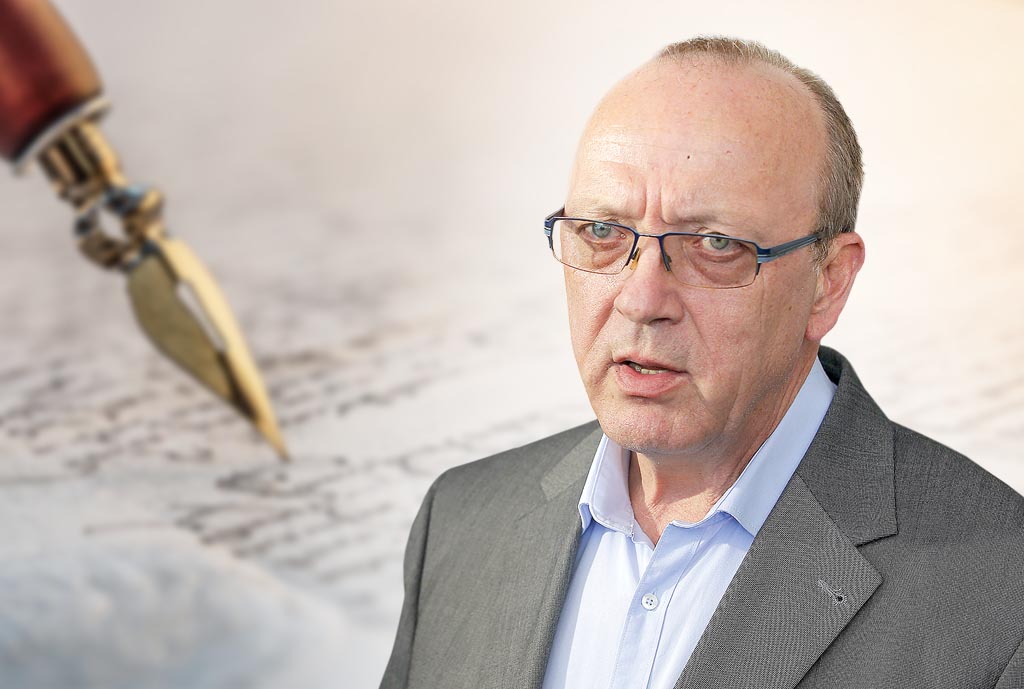By: Dr Vinko Gorenak
Let’s continue with the achievements of Golob’s coalition. They are no longer on vacation, so they no longer have the opportunity not to cause damage, and I no longer need to analyse the “Coalition Work Programme 2022-2026” and compare it to its implementation. The daily achievements of Golob’s coalition are abundant, but there is not enough space for writing about them. The issue I will address has already been presented in the media, but my intention is to make a comparison with the three governments of Janez Janša, specifically how we handled similar situations back then.
In July this year, the United States hosted the High-Level Political Forum on Sustainable Development 2023. At first glance, this seems useless to me. Participation was also possible through video links, so there was no need for travel. The official delegation from the Ministry of Public Administration, led by the minister, consisted of five members, and three members from other ministries travelled separately. In total, it was an eight-member delegation. In the practice of the three governments of Janez Janša, I do not recall such cases. Moreover, the government has always approved only one delegation without separate participants as seen this time.
What about the costs? Five members of Minister Ajanović Hovnik’s delegation spent a staggering 33,000 euros of your taxpayer money on the trip. Three members of the delegation from other ministries spent “only” 13,800 euros. The total cost to you, the taxpayers, was a whopping 46,880 euros, which is equivalent to 77 minimum pensions “guaranteed” by Luka Mesec, a member of Golob’s coalition to retirees.
I closely monitored the work of the three governments of Janez Janša, and from 2012 to 2013, I served as a member of the government as the Minister of the Interior. Cabinet meetings routinely approved the programmes for the foreign visits of ministers or state secretaries and the composition of the delegations. After the visits, the government would receive reports on their work. During the first Janša government from 2004 to 2008, Minister Gregor Virant was the one who consistently pointed out the composition of each delegation, and there were very few cases where a delegation had more than three members. Typically, it included the minister or state secretary, the director of the relevant directorate covering the agenda, and occasionally the chief of staff, a translator, a public relations representative, or similar roles. There were few instances of delegations with more than three members, and in such cases, the minister had to provide a specific justification.
The situation was no different during the second Janša government from 2012 to 2013. Ministers were aware that during times of austerity, extravagant delegations were unacceptable. Most of us did not propose delegations with more than three members. Sometimes it was challenging; as the Minister of the Interior, I had responsibility for both the police and the prosecution service within my ministry. I had to decide which director, either for the police or prosecution, would accompany me. The head of my office at the time hardly ever travelled, let alone anyone else.
The situation was quite similar during the third Janša government from 2020 to 2022, with few delegations having more than three members but still present.
Today, we have the Sbovoda party and Golob’s coalition in power, so everything is different. But do not think they are the biggest spenders of taxpayer money. Years ago, then-President Danilo Tűrk travelled to Bosnia and Herzegovina. Taxpayers paid a staggering 89,100 euros for the charter of the plane he used. When I travelled there as the Minister of the Interior in 2012, I drove with my car and two security personnel. The fuel and per diems for both security personnel cost less than 300 euros.
And that is not all. As I write this, the question arises why the supreme leader of Golob’s coalition paid a whopping 73,800 euros for chartering planes for his solo or partner trips in August 2023. This amount is higher than what the third Janša government spent on his travels in two years, including during Slovenia’s presidency of the EU Council. Minister Ajanović Hovnik has also created another controversy; she allocated 300,000 euros to her former business partner or her mother’s NGO. This situation cannot be compared to that of Minister Janez Cigler Kralj in the previous government. He left the Iskreni Institute before becoming a minister, did not transfer his stake to relatives, and did not return to the organisation after his tenure. SDS party is demanding answers. It will be interesting to see how this unfolds. To be continued.

